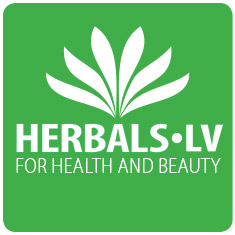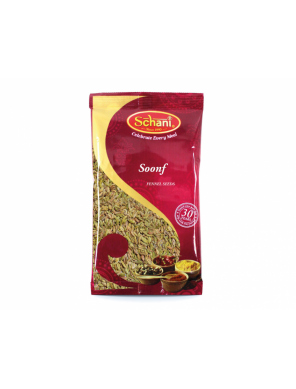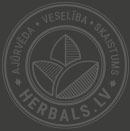Products
- Ayurvedic tea
- Indian teas
- Supplements
- Oils and drinks for health
- Facial Care
- For Skin
- Dental care
- For personal hygiene
- Sport and Yoga
- For Hair Health
- For massage
- Healthcare
- For Women
- Supplements for Men
- Aromatherapy Essential Oil
- Incense sticks
- Indian Food
- Vegan
- Superfoods
- For meditation
- For home
- New Products
- Specials
- Ayurvedic Herbs
- Wholesale
- Gifts and Kits
Browser notifications:
Fennel Seeds (SOONF) Schani
Fennel seeds
Code: 3523
1.50€
Schani Fennel Seeds SOONF 100g
Code: 35233
3.90€
3 x Schani Fennel Seeds SOONF 100g
Manufacturer: TRS, Indija
Net weight: 100g
Sweet, anise-flavored fennel seed together with thyme, nettle, mugwort, etc., has been revered as one of nine Anglo-Saxon sacred herbs for its conventional health benefits. The spice is one of the most sought-after ingredients in many popular cuisines all over the Mediterranean regions.
Fennel is native to Southern Europe and grown extensively all over Europe, Middle-East, China, India, and Turkey.
Fennel symbolizes longevity, courage, and strength. In addition to its use as medicinal values, fennel has many health benefiting nutrients, essential compounds, anti-oxidants, dietary fiber, minerals, and vitamins.
Fennel seeds indeed contain numerous flavonoid anti-oxidants like kaempferol and quercetin. These compounds function as powerful anti-oxidants by removing harmful free radicals from the body thus offer protection from cancers, infection, aging and degenerative neurological diseases.
Like in caraway, fennel seeds too are rich source of dietary fiber. 100 g seeds provide 39.8 g of fiber. Much of this roughage is metabolically inert insoluble fiber, which helps increase bulk of the food by absorbing water throughout the digestive system and easing constipation condition.
In addition, dietary fibers bind to bile salts (produced from cholesterol) and decrease their re-absorption in colon. It thus helps lower serum LDL cholesterol levels. Together with flavonoid anti-oxidants, fiber composition of fennel helps protect the colon mucus membrane.
Fennel seeds compose of health benefiting volatile essential oil compounds such as anethole, limonene, anisic aldehyde, pinene, myrcene, fenchone, chavicol, and cineole. These active principles in the fennel are known to have antioxidant, digestive, carminative, and anti-flatulent properties.
Fennel seeds are concentrated source of minerals like copper, iron, calcium, potassium, manganese, selenium, zinc, and magnesium. Copper is required in the production of red blood cells. Iron is required for red blood cell formation. Zinc is a co-factor in many enzymes that regulate growth and development, sperm generation, digestion and nucleic acid synthesis. Potassium is an important component of cell and body fluids that helps controlling heart rate and blood pressure. Manganese is used by the body as a co-factor for the powerful anti-oxidant enzyme, superoxide dismutase.
Furthermore, the seeds indeed are the storehouse for many vital vitamins. Vitamin A, vitamin E, vitamin C as well as many B-complex vitamins like thiamin, pyridoxine, riboflavin and niacin particularly are concentrated in these seeds.
Net weight: 100g
Sweet, anise-flavored fennel seed together with thyme, nettle, mugwort, etc., has been revered as one of nine Anglo-Saxon sacred herbs for its conventional health benefits. The spice is one of the most sought-after ingredients in many popular cuisines all over the Mediterranean regions.
Fennel is native to Southern Europe and grown extensively all over Europe, Middle-East, China, India, and Turkey.
Fennel symbolizes longevity, courage, and strength. In addition to its use as medicinal values, fennel has many health benefiting nutrients, essential compounds, anti-oxidants, dietary fiber, minerals, and vitamins.
Fennel seeds indeed contain numerous flavonoid anti-oxidants like kaempferol and quercetin. These compounds function as powerful anti-oxidants by removing harmful free radicals from the body thus offer protection from cancers, infection, aging and degenerative neurological diseases.
Like in caraway, fennel seeds too are rich source of dietary fiber. 100 g seeds provide 39.8 g of fiber. Much of this roughage is metabolically inert insoluble fiber, which helps increase bulk of the food by absorbing water throughout the digestive system and easing constipation condition.
In addition, dietary fibers bind to bile salts (produced from cholesterol) and decrease their re-absorption in colon. It thus helps lower serum LDL cholesterol levels. Together with flavonoid anti-oxidants, fiber composition of fennel helps protect the colon mucus membrane.
Fennel seeds compose of health benefiting volatile essential oil compounds such as anethole, limonene, anisic aldehyde, pinene, myrcene, fenchone, chavicol, and cineole. These active principles in the fennel are known to have antioxidant, digestive, carminative, and anti-flatulent properties.
Fennel seeds are concentrated source of minerals like copper, iron, calcium, potassium, manganese, selenium, zinc, and magnesium. Copper is required in the production of red blood cells. Iron is required for red blood cell formation. Zinc is a co-factor in many enzymes that regulate growth and development, sperm generation, digestion and nucleic acid synthesis. Potassium is an important component of cell and body fluids that helps controlling heart rate and blood pressure. Manganese is used by the body as a co-factor for the powerful anti-oxidant enzyme, superoxide dismutase.
Furthermore, the seeds indeed are the storehouse for many vital vitamins. Vitamin A, vitamin E, vitamin C as well as many B-complex vitamins like thiamin, pyridoxine, riboflavin and niacin particularly are concentrated in these seeds.
Also bought
 HEER Superior Basmati Rice extra long grain 1kg
6.50€
Aromatic extra long grain Basmati rice
HEER Superior Basmati Rice extra long grain 1kg
6.50€
Aromatic extra long grain Basmati rice
 CUMIN POWDER JEERA
3.90€
Cumin cleanses the respiratory organs, removes toxins from the body
CUMIN POWDER JEERA
3.90€
Cumin cleanses the respiratory organs, removes toxins from the body
 METHI FENUGREEK SEEDS
1.90€
Fenugreek seeds
METHI FENUGREEK SEEDS
1.90€
Fenugreek seeds
Top sellers
 CHIA seeds 500g
5.50€
Chia seeds - a natural source of Omega 3
CHIA seeds 500g
5.50€
Chia seeds - a natural source of Omega 3
 HIMALAYAN SALT fine 1Kg
2.50€
Himalayan pink salt (fine)
HIMALAYAN SALT fine 1Kg
2.50€
Himalayan pink salt (fine)
 CINNAMON POWDER HERBALS 100g
2.50€
Cinnamon for health and slim body
CINNAMON POWDER HERBALS 100g
2.50€
Cinnamon for health and slim body
This item has been added to cart.










